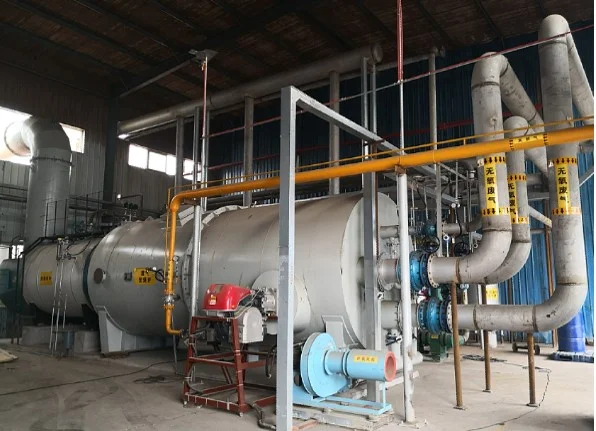Heat exchangers are pivotal components in a multitude of industries, serving as the backbone of thermal management systems. Their primary function is to transfer heat between two or more fluids without mixing them, which is essential for maintaining optimal operating conditions in various processes. This article delves into the diverse applications of heat exchangers, highlighting their significance across different sectors and the technological advancements that enhance their efficiency.
- Industrial Applications
1.1 Chemical Processing
In the chemical industry, heat exchangers are crucial for controlling reaction temperatures and ensuring product quality. They are employed in processes such as distillation, where precise temperature regulation is vital for separating components based on their boiling points. Shell-and-tube heat exchangers are commonly used in this sector due to their robustness and ability to handle high pressures and temperatures.
1.2 Oil and Gas
The oil and gas industry relies heavily on heat exchangers for various applications, including crude oil refining and natural gas processing. In refineries, heat exchangers facilitate the recovery of heat from hot process streams, improving energy efficiency and reducing operational costs. Additionally, they play a critical role in cooling systems, where they help maintain safe operating temperatures for equipment.
- Power Generation
Heat exchangers are integral to power generation, particularly in thermal and nuclear power plants. In these facilities, they are used to transfer heat from the combustion of fossil fuels or nuclear reactions to water, converting it into steam that drives turbines. The efficiency of heat exchangers directly impacts the overall efficiency of power plants, making their design and maintenance crucial for energy production.
- HVAC Systems
In heating, ventilation, and air conditioning (HVAC) systems, heat exchangers are employed to regulate indoor temperatures and improve air quality. They facilitate heat recovery from exhaust air, allowing for the pre-heating of incoming fresh air. This not only enhances energy efficiency but also contributes to reduced operational costs. Plate heat exchangers are particularly favored in HVAC applications due to their compact design and high heat transfer efficiency.
- Food and Beverage Industry
The food and beverage industry utilizes heat exchangers for pasteurization, sterilization, and cooling processes. For instance, in the dairy sector, heat exchangers are essential for pasteurizing milk, ensuring safety while preserving quality. The design of these heat exchangers must comply with stringent hygiene standards, necessitating the use of materials that are easy to clean and resistant to corrosion.
- Renewable Energy
As the world shifts towards sustainable energy sources, heat exchangers are increasingly being integrated into renewable energy systems. In solar thermal systems, they transfer heat from solar collectors to a working fluid, which can then be used for heating or electricity generation. Similarly, in geothermal energy systems, heat exchangers facilitate the transfer of heat from the ground to a fluid, enabling efficient energy extraction.
- Automotive Applications
In the automotive industry, heat exchangers are vital for engine cooling and climate control. Radiators, a type of heat exchanger, dissipate heat from the engine coolant to the atmosphere, preventing overheating. Additionally, vehicle HVAC systems utilize heat exchangers to provide comfortable cabin temperatures, showcasing their importance in both performance and passenger comfort.
- Pharmaceuticals
The pharmaceutical industry employs heat exchangers in various processes, including the production of vaccines and other temperature-sensitive products. Maintaining precise temperature control during manufacturing and storage is critical to ensuring product efficacy and safety. Heat exchangers designed for pharmaceutical applications must adhere to strict regulatory standards, emphasizing the need for reliability and efficiency.
Conclusion
Heat exchangers are indispensable across a wide array of industries, playing a crucial role in enhancing energy efficiency, maintaining product quality, and ensuring operational safety. As technology advances, the design and materials used in heat exchangers continue to evolve, leading to improved performance and sustainability. Understanding where and how heat exchangers are utilized can provide valuable insights into their significance in modern industrial processes and the ongoing quest for energy efficiency.



More Stories
Energy Efficiency and Cost Benefits of Using a Direct Combustion Furnace
How Automatic Shoe Cover Dispensers Are Revolutionizing Cleanliness in High-Traffic Areas
Why Automatic Shoe Cover Dispensers Are Becoming Essential in Modern Facilities